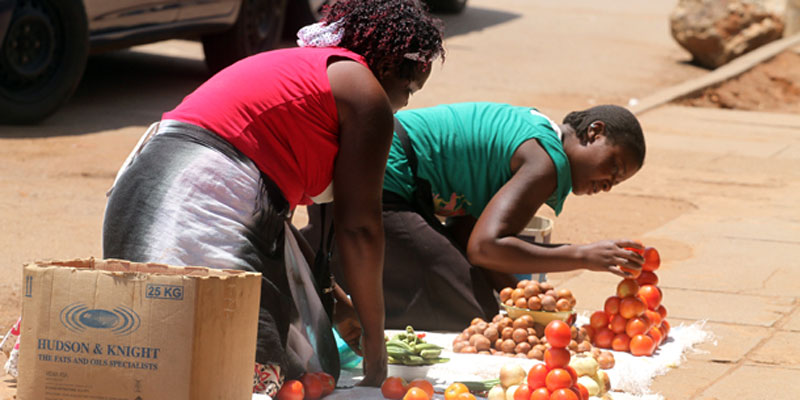
Harare’s central business district (CBD) is choked with vendors of all kinds who have blocked pavements, increased littering and raised the decibel of noise pollution as they hustle for customers.
NewsDay comment
Harare City Council has seen enough and wants to herd the vendors out of the CBD. There is resistance to this move by the vendors. They are playing victim and are keen to portray council as an uncaring and reckless institution bent on pushing multitudes into poverty.
In the unfolding drama, government appears a silent spectator, perhaps not very sure which way to turn, but yet a key player in the chaos that has engulfed the city centre.
The solution in the vending crisis does not rest solely with city fathers and vendors’ representatives, but must involve central government whose political leaders have difficult choices to make.
They can elect to sort out the mess and be ruthless with the vendors in cleaning up the city. To achieve this, they would have to sacrifice electoral support.
They can allow the vendors to continue to trade unhindered at the expense of formal business, which will close shop or relocate to peaceful suburban shopping malls. The result is reduced taxes and the death of the CDB.
In between this quandary is the solution which the government has been unwilling to find. The current spate of street vending is a product of deliberate State policies and poor planning on the part of the local authority.
- Chamisa under fire over US$120K donation
- Mavhunga puts DeMbare into Chibuku quarterfinals
- Pension funds bet on Cabora Bassa oilfields
- Councils defy govt fire tender directive
Keep Reading
As a result, Harare is going through a tough phase which will be difficult to solve in the absence of a clear policy direction.
Many urban areas the world over experience phases in which central government and city fathers tolerate, then regulate, and then evict street vendors in tandem with economic trends, election cycles and urban management systems.
Zimbabwe is in the throes of major economic challenges characterised by unemployment, company closures and redundancies. This phenomenon and the deliberate policy thrust to informalise the economy has helped to increase vending in the city.
Zanu PF politicians keen to curry favour with the urban voters in the last election promoted street vending. First Lady Grace Mugabe had occasion last year to chide the police for harassing vendors and recognised vending as the new form of livelihood.
Tolerating street vending at a policy level has a major effect on existing by-laws. It elevates the vending problems from being a mere urban nuisance to social culture. This renders the by-laws (created to deal with criminal nuisance) ineffectual and disempowers the police to act on the new social challenge.
Harare has gone through the first classical phase in the evolution of street vending — tolerance of the menace. The city is attempting to go to stage three — eviction without coming up with a new policy direction to deal with the social problem. This is bound to fail.
Government and the local authority have to develop a new policy to deal with the problem of vending as street commerce is not going away soon. Blitzes and police raids will not work. There is already a precedent. Harare City Council and government blitzes have failed dismally to solve the kombi and pirate taxis menace. New thinking is required to solve the problem of vending.











